Essential Cycling Safety Tips for New Riders: Staying Secure on the Road
Embarking on your cycling journey as a new rider is an exciting adventure filled with opportunities for fitness, exploration, and freedom. However, prioritizing safety is paramount to ensure a positive and secure experience on the road. By adhering to essential safety tips and adopting good cycling habits, you can greatly minimize the risk of accidents and enjoy your rides to the fullest. In this article, we will provide you with valuable cycling safety tips that will help you stay safe on the road as a new rider.
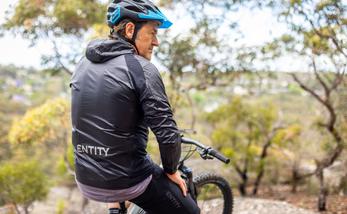
Protect Your Head
Wearing a well-fitted helmet is one of the most critical safety precautions for cyclists of all experience levels. A helmet shields your head in case of a fall or collision, significantly reducing the risk of severe head injuries. Invest in a high-quality helmet that meets safety standards, and always fasten it securely before starting your ride.
Visit our wide range of helmets at BikesOnline Available here:

Be Visible
Enhancing your visibility on the road is essential for your safety. Wear brightly colored or reflective clothing to make yourself more noticeable to motorists. Equip your bike with front and rear lights, even during the daytime, to increase visibility. Consider adding additional reflectors or reflective tape to your bike and accessories to further enhance visibility.
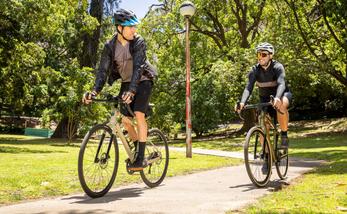
Observe Traffic Laws
Treat your bicycle as a vehicle and obey all traffic laws. Ride in the same direction as traffic, use designated bike lanes when available, and signal your intentions clearly. Stop at traffic lights and stop signs, yield to pedestrians, and give right-of-way as required. Avoid weaving in and out of traffic and always remain aware of your surroundings.
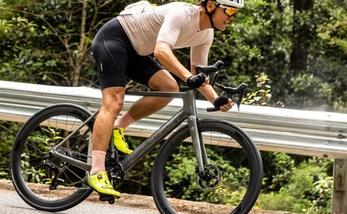
Stay Alert
Maintain vigilance while cycling. Keep your focus on the road ahead, scanning for potential hazards such as potholes, debris, or parked cars. Watch for opening car doors and be mindful of pedestrians and other cyclists. Avoid distractions such as using your phone or wearing headphones, as they can impair your ability to hear and react to the environment.

Maintain Your Bike
Regularly inspect and maintain your bicycle to ensure it is in safe working condition. Check tire pressure, brakes, and gears before each ride. Keep your bike clean and properly lubricated, and promptly replace any worn-out components. A well-maintained bike performs better and reduces the risk of mechanical failures that can lead to accidents.
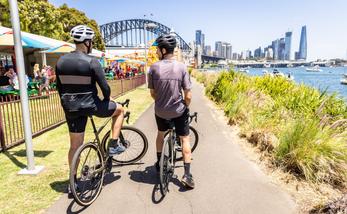
Ride Defensively
Adopt a defensive riding mindset and assume that motorists may not see you. Give large vehicles extra space, exercise caution at intersections, and anticipate potential hazards. Be prepared to react quickly and defensively if the need arises. Developing good situational awareness and defensive riding skills is crucial for your safety and the people around you.
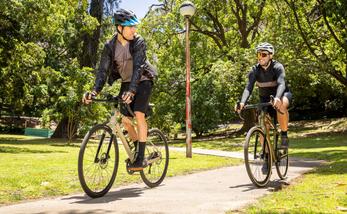
Communicate with Others
Effective communication is essential while cycling on the road. Use clear hand signals to indicate your intentions to motorists and other riders. Make eye contact with drivers at intersections to ensure they acknowledge your presence before proceeding. Use verbal cues, such as calling out "passing on your right," when overtaking pedestrians or other cyclists on shared paths.
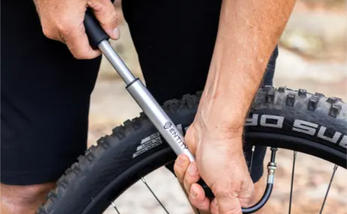
Be Prepared for Emergencies
Carry essential items with you in case of emergencies. Pack a small first aid kit, a spare tube, tire levers, and a bike pump. Familiarize yourself with basic bike maintenance skills, such as fixing a flat tire or adjusting brakes, so you can handle minor issues on the road.

Practice Bike Handling Skills
Improving your bike handling skills will enhance your safety and confidence on the road. Practice maneuvering through cones or slalom courses to improve your balance, cornering, and braking abilities. Consider taking a cycling skills course or seek guidance from experienced riders to refine your technique.
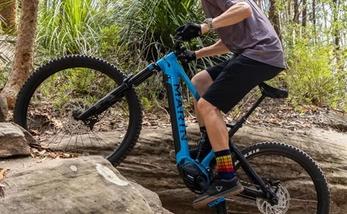
Learn from Experienced Riders
Tap into the wealth of knowledge and experience shared by seasoned cyclists. Engage with the cycling community through local clubs, online forums, or social media groups. Experienced riders can provide valuable insights, share safety tips, and help you become a more confident and knowledgeable cyclist.
Conclusion:
As a new rider, prioritizing your safety on the road is paramount. By following these cycling safety tips, including wearing a helmet, enhancing your visibility, obeying traffic laws, staying alert, maintaining your bike, riding defensively, and seeking guidance from experienced riders, you can significantly reduce the risks associated with cycling and enjoy your rides safely. Remember, safety should always be your top priority, so ride smart and make every cycling experience a safe and enjoyable one. Happy riding!
Author:
Jakub Novak is a cycling coach at ProCyclingCoaching and a former World Tour cyclist. Jakub rode for the BMC Racing Team alongside Tour de France winner and multiple World Champions. His company provides a range of solutions, including online coaching, training plans, and valuable free resources catering to cyclists of all levels.
 AUS
AUS USA
USA




.jpg)






















